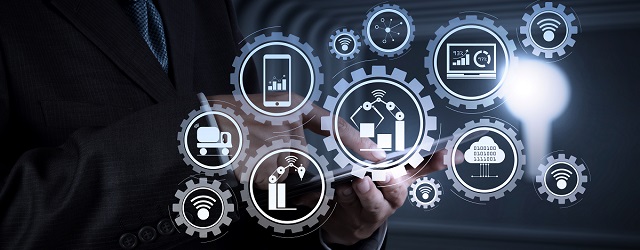EC-Terminals, also known as Electronic Cash Terminals, can be found in a variety of locations such as retail stores, gas stations, vending machines, and parking garages. They are typically used for accepting payments in the form of debit or credit cards, as well as electronic cash payments. You can also use EC-Terminals to withdraw cash. You can find them in most places where you need to make a payment.
EC-Terminals, also known as Electronic Cash Terminals, are electronic devices that are used to process card payments and other electronic transactions. They are typically found in retail stores, gas stations, vending machines, parking garages, and other places where payments are accepted. These terminals can accept a variety of payment methods, including credit and debit cards, electronic cash, and contactless payments such as Apple Pay and Google Wallet. Some EC-Terminals also have the capability to process checks, gift cards, and other forms of payment. Additionally, you can use EC-Terminals to withdraw cash, check your account balance, or even pay your bills. They are widely used in many countries and can be found in most places where payment is needed.
Do I have to buy the terminal? What are the costs?
There are different options for obtaining an EC-Terminal, depending on your specific needs and the type of business you operate.
- Purchase: You can purchase an EC-Terminal outright for a one-time cost. The price of the terminal will vary depending on the make and model, but can range from several hundred to several thousand dollars.
- Lease: Some companies offer EC-Terminals on a lease basis, where you pay a monthly or annual fee for the use of the terminal. This option can be more cost-effective if you don’t want to make a large upfront investment in a terminal.
- Rent: Some companies also offer EC-Terminals on a rental basis, usually for a short-term period. This can be a good option if you need a terminal for a specific event or promotion.
Additional costs that you may need to consider include:
- Setup and installation fees: Some companies may charge a fee for setting up and installing the terminal.
- Transaction fees: You may be charged a fee for each transaction processed through the terminal.
- Monthly fees: Some companies may charge a monthly fee for maintaining and updating the terminal.
- Card acceptance fees: You may be charged a fee for accepting certain types of cards, such as credit cards.
- It’s important to research different options and compare costs to find the best solution for your business.
How quickly do I receive the EC terminal?
The time it takes to receive an EC-Terminal after placing an order can vary depending on the supplier and the type of terminal you choose. Some suppliers may have terminals in stock and can ship them out immediately, while others may need to order the terminal from the manufacturer and may have a longer lead time.
Typically, if you purchase an EC-Terminal, it can take anywhere from a few days to several weeks to receive the terminal after placing an order. If you choose to lease or rent a terminal, the supplier may have the terminal available for immediate use or it may take some time for the supplier to set up the terminal for your business.
It’s a good idea to check with the supplier about the lead time for receiving the terminal and ensure that you have a clear understanding of when you can expect to receive the terminal before placing an order.
How secure is the Terminal?
EC-Terminals, also known as Electronic Cash Terminals, are designed to be secure devices for processing card payments and other electronic transactions. The level of security for EC-Terminals can vary depending on the make and model, but most terminals are equipped with a variety of security features to protect against fraud and unauthorized access.
Some common security features of EC-Terminals include:
- Encryption: Data transmitted between the terminal and the card issuer is encrypted to prevent unauthorized access.
- PCI Compliance: Most terminals are compliant with the Payment Card Industry Data Security Standard (PCI DSS), which is a set of security standards designed to protect cardholder data.
- Firewall: A firewall is a security feature that protects the terminal from unauthorized access by blocking unwanted incoming and outgoing network traffic.
- Secure Software: The terminal runs on secure software that helps to protect the terminal from malware and other malicious software.
- Secure Keypad: Some terminals have a secure keypad that encrypts the data entered by the user to prevent skimming.
- It’s important to note that despite the security features, there is no system that is completely immune to fraud, it’s recommended to always use the terminals in a secure environment and monitor the transactions regularly. Additionally, it’s important to regularly update the software on the terminal to ensure that it is running the latest security updates.
It’s important to work with a reputable supplier that can provide support and assistance in maintaining the security of the terminal, and also follow the security protocols provided by your payment processor and card networks. See more here.





